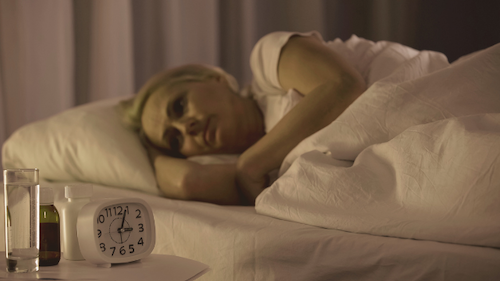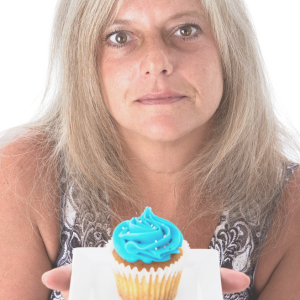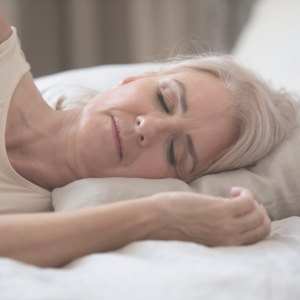Can sleeplessness cause weight gain? + The 3 step sleep habits Checklist!
Unfortunately, research suggests that inadequate sleep may trigger weight growth. Poor sleepers consume an extra 380+ calories daily, research shows! So the question 'Do sleepless nights mean I eat more during the day' has some truth to it.

This means a higher calorie intake without and compensating activity may lead to weight gain.
Let's take a look why, before we jump to the 3 step CHECKLIST
It's Gotta be the Hormones... Right!

Yep, the misregulation of leptin and ghrelin hormones is to blame. The "satiety hormone," leptin, alerts your brain to fullness. Ghrelin, the "hunger hormone," tells your brain to eat. Sleeplessness causes hormones to go in all directions.
Hunger Always Comes

Lack of sleep reduces leptin 18%. This hormone suppresses appetite, so low levels leave you hungry. Even worse, sleep loss boosts ghrelin 28%. Ghrelin is the hunger hormone. You need snacks all day and possibly late at night when hormonal signals are off.
Argh… Those annoying cravings again

Lack of sleep affects hunger and desires. Poor sleep increases the craving for sweet carb high-calorie foods, according to research. If you wake up seeking ultra-sugary cereals instead of oatmeal or eggs, you now know why. Sleep deprivation affects brain reward regions, making unhealthy meals more appealing.
Sleep and diet affect each other.

Sleep and eat interact. Sugary and low-fiber diets are associated to fragmented and less restorative deep sleep, according to research. Pizza, pasta, with soda before bed may cause heartburn and insomnia. Poor sleep might cause unhealthy food desires the next day, perpetuating the cycle.
Eat smart to sleep smart.

Positive sleep can dramatically impact weight control. Adding an hour to your nighttime sleep may reduce obesity risk by 14%, according to research. Establishing regular sleep patterns like going to bed and getting up at the same time week after week will help you stay energised and resist daytime cravings.
One Last Thought
There are so many health reasons to motivate us to establish sound regular sleep patterns. Its impact on the appetite regulating hormones that can cause weight gain could be the motivation that moves you into action, to stop burning the candle at both ends.
Get Heaps more Whole Food and High Protein Recipes
+ Weekly Menu Plans
Join The STRONG ZONE Membership
Join NOW & Take Advantage of the 14-Day Trial Period
The 3 step sleep habits Checklist
1. Master your sleep hygiene
Meaning, master both your sleep environment and behaviour.
- Eat early, that is at least 2-3 hours before bedtime.
- But if that's not possible, then avoid the spicy, rich or heavy meals within the 0-2 hour window.
- Create regular going to bed and waking times.
- Have a relaxing pre bedtime routine.
- Make your bed as comfortable as possible, and prep with blankets if the night may get cooler, so you can maintain a consistent temperature.
2. Wind back the screen time before bed
Don't just tell the kids do it yourself.
- That's electronic devices from TV to Smart Phones, as it messes with your melatonin, the hormone that regulates sleep cycles.
- Develop something calming like a book, soothing music or a reciprocal massage... And that's ALL!!
3. Track your thoughts and anxiety level
You may have had one of those days where your mind is filled with a million thoughts buzzing around.
- If needed grab a journal and write down any thoughts or ideas that need to be addressed tomorrow. That way you can relax as you won't forget it tomorrow.
- Develop some stress reducing techniques like meditation, deep breathing or still/quietness.
Sources & Additional Reading
Cooper CB, Neufeld EV, Dolezal BA, et alSleep deprivation and obesity in adults: a brief narrative reviewBMJ Open Sport & Exercise Medicine 2018;4:e000392. doi: 10.1136/bmjsem-2018-000392
Sleep loss boosts appetite, may encourage weight gain: https://www.uchicagomedicine.org/forefront/news/sleep-loss-boosts-appetite-may-encourage-weight-gain
Sharma S, Kavuru M. Sleep and metabolism: an overview. Int J Endocrinol. 2010;2010:270832. doi: 10.1155/2010/270832. Epub 2010 Aug 2. PMID: 20811596; PMCID: PMC2929498.
Mullin BC, Phillips ML, Siegle GJ, Buysse DJ, Forbes EE, Franzen PL. Sleep deprivation amplifies striatal activation to monetary reward. Psychol Med. 2013 Oct;43(10):2215-25. doi: 10.1017/S0033291712002875. Epub 2013 Jan 4. PMID: 23286303; PMCID: PMC3742668.
St-Onge MP, Mikic A, Pietrolungo CE. Effects of Diet on Sleep Quality. Adv Nutr. 2016 Sep 15;7(5):938-49. doi: 10.3945/an.116.012336. PMID: 27633109; PMCID: PMC5015038.
Beccuti G, Pannain S. Sleep and obesity. Curr Opin Clin Nutr Metab Care. 2011 Jul;14(4):402-12. doi: 10.1097/MCO.0b013e3283479109. PMID: 21659802; PMCID: PMC3632337.
Yes, There's an Ideal Temperature for Sleep—and Here's Why It Matters: https://www.realsimple.com/health/preventative-health/sleep/ideal-temperature-for-sleep
STRONG A.D.L. Movements
Establish ACTIVE DAILY LIFE Movements that last and support the lifestyle that you desire!
